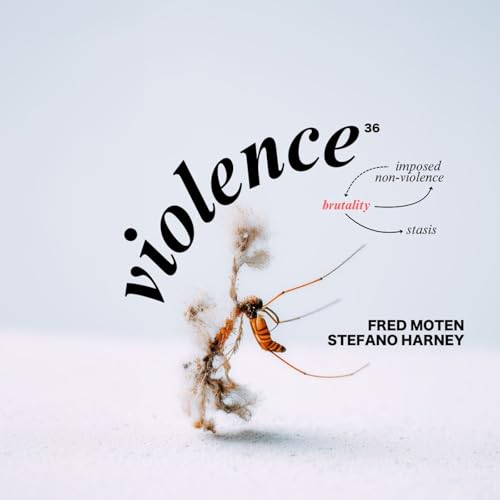
36. Violence (w/ Fred Moten and Stefano Harney)
Failed to add items
Sorry, we are unable to add the item because your shopping cart is already at capacity.
Add to basket failed.
Please try again later
Add to Wish List failed.
Please try again later
Remove from Wish List failed.
Please try again later
Follow podcast failed
Unfollow podcast failed
-
Narrated by:
-
By:
About this listen
In a lot of ways neither Moten nor Harney require an introduction, they are the sources of major touchstone references made throughout this podcast — from last week’s guest Ramon Amaro to one of our first guests, Luciana Parisi, and plenty of places in between.
The episode starts with a conversation about AI, but it quickly becomes a conversation about change, the question of the necessity of change or even organization, and imposition (that is, the brutal, external application of force against situations that already contain within themselves the lived possibility of alternative futures).
Some important references among many from the episode:
- Fred Moten & Stefano Harney, The Undercommons: Fugitive Planning & Black Study (Minor Compositions, 2013).
- Matteo Pasquinelli, The Eye of the Master: A Social History of Artificial Intelligence (Verso, 2023).
- Sylvia Wynter, “Unsettling the Coloniality of Being/Power/Truth/Freedom: Towards the Human, After Man, Its Overrepresentation—An Argument” (2003).
- Christina Sharpe, In the Wake: On Blackness and Being (Duke UP, 2016).
- Denise Ferreira da Silva, Unpayable Debt (Sternberg Press, 2022).
- Cedric J. Robinson, Black Marxism: The Making of the Black Radical Tradition (1983; later eds. 2000/2020).
- Amiri Baraka, “The Changing Same (R&B and New Black Music),” in Black Music (1968).
- Hua Hsu, “What Happens After A.I. Destroys College Writing?” The New Yorker (June 30, 2025).
No reviews yet
In the spirit of reconciliation, Audible acknowledges the Traditional Custodians of country throughout Australia and their connections to land, sea and community. We pay our respect to their elders past and present and extend that respect to all Aboriginal and Torres Strait Islander peoples today.


